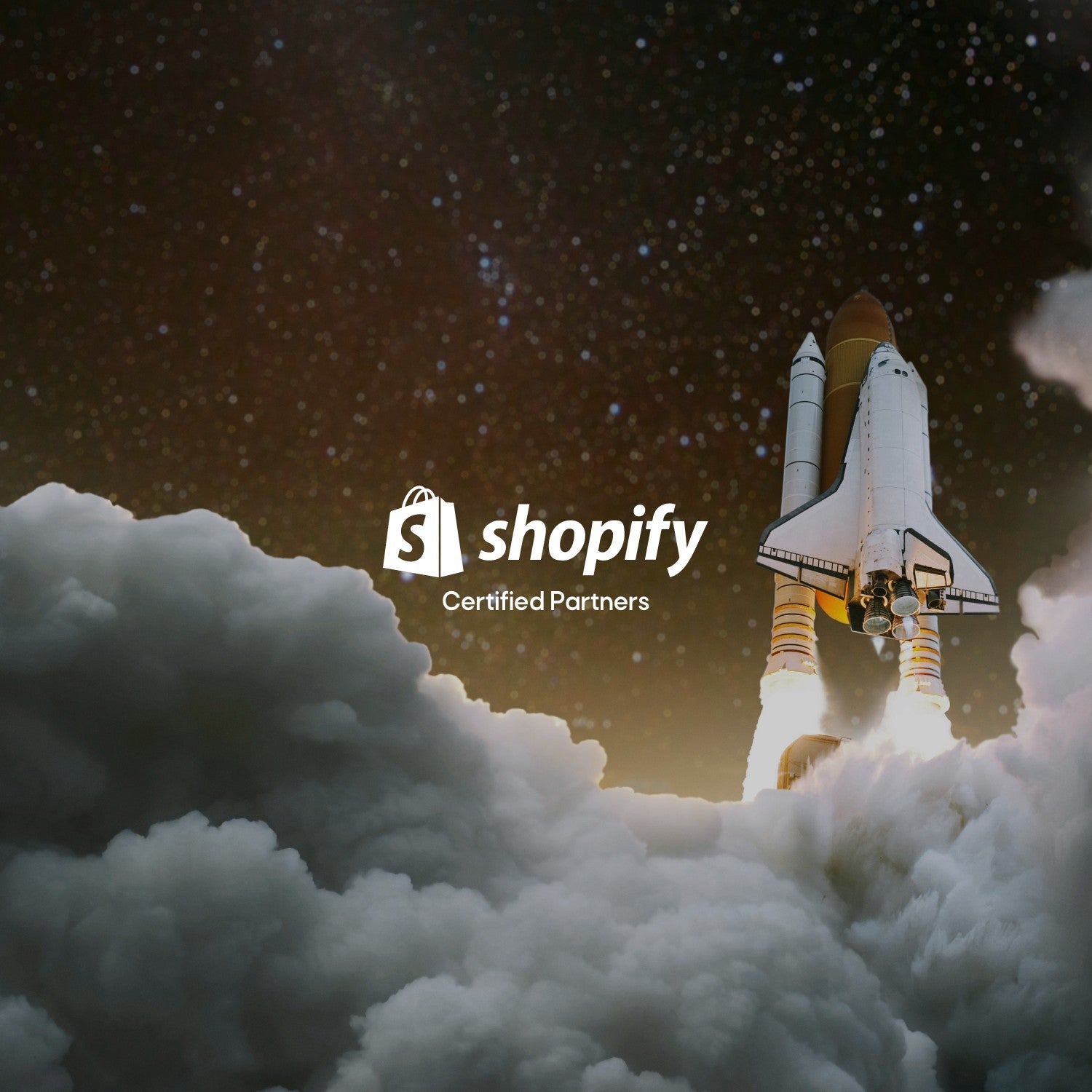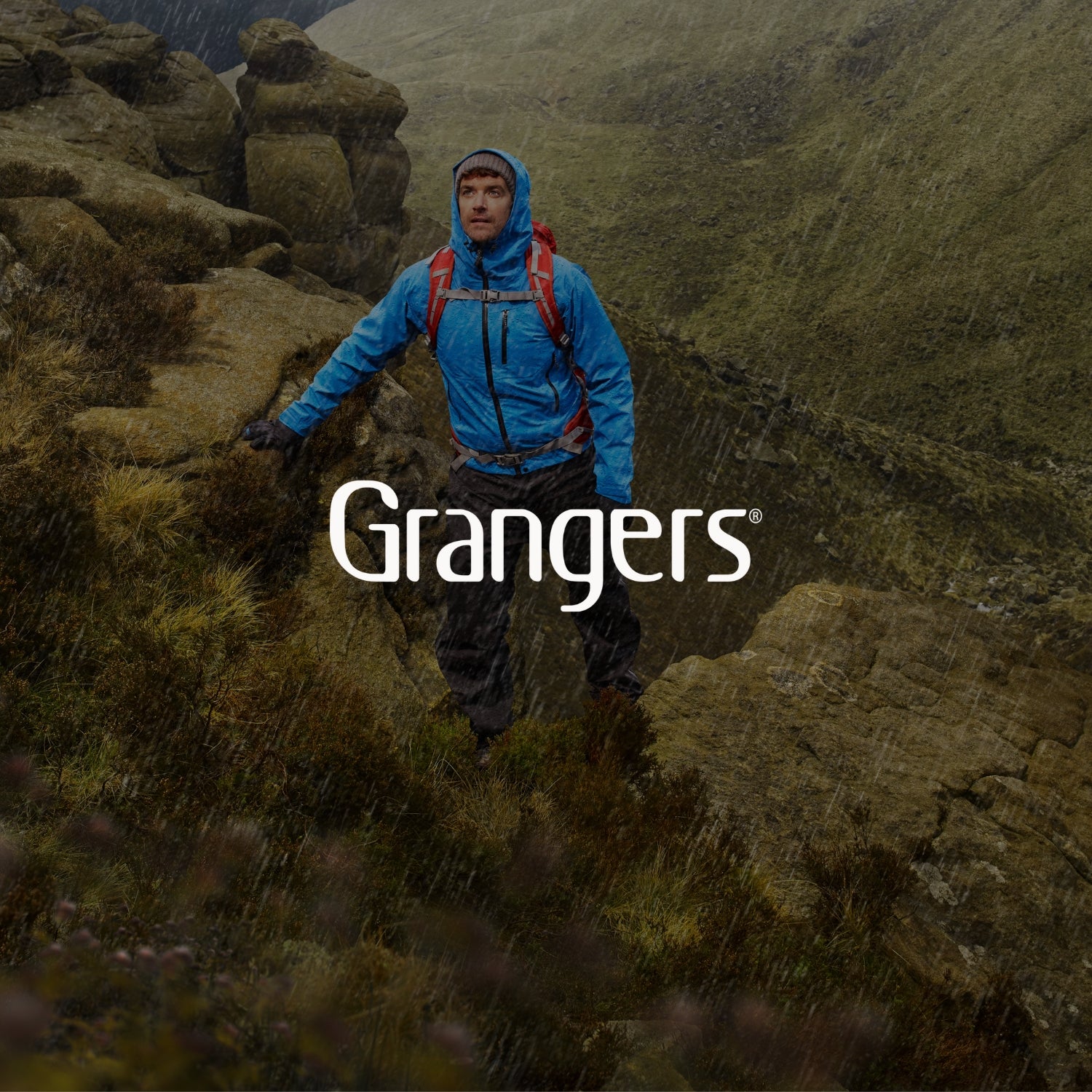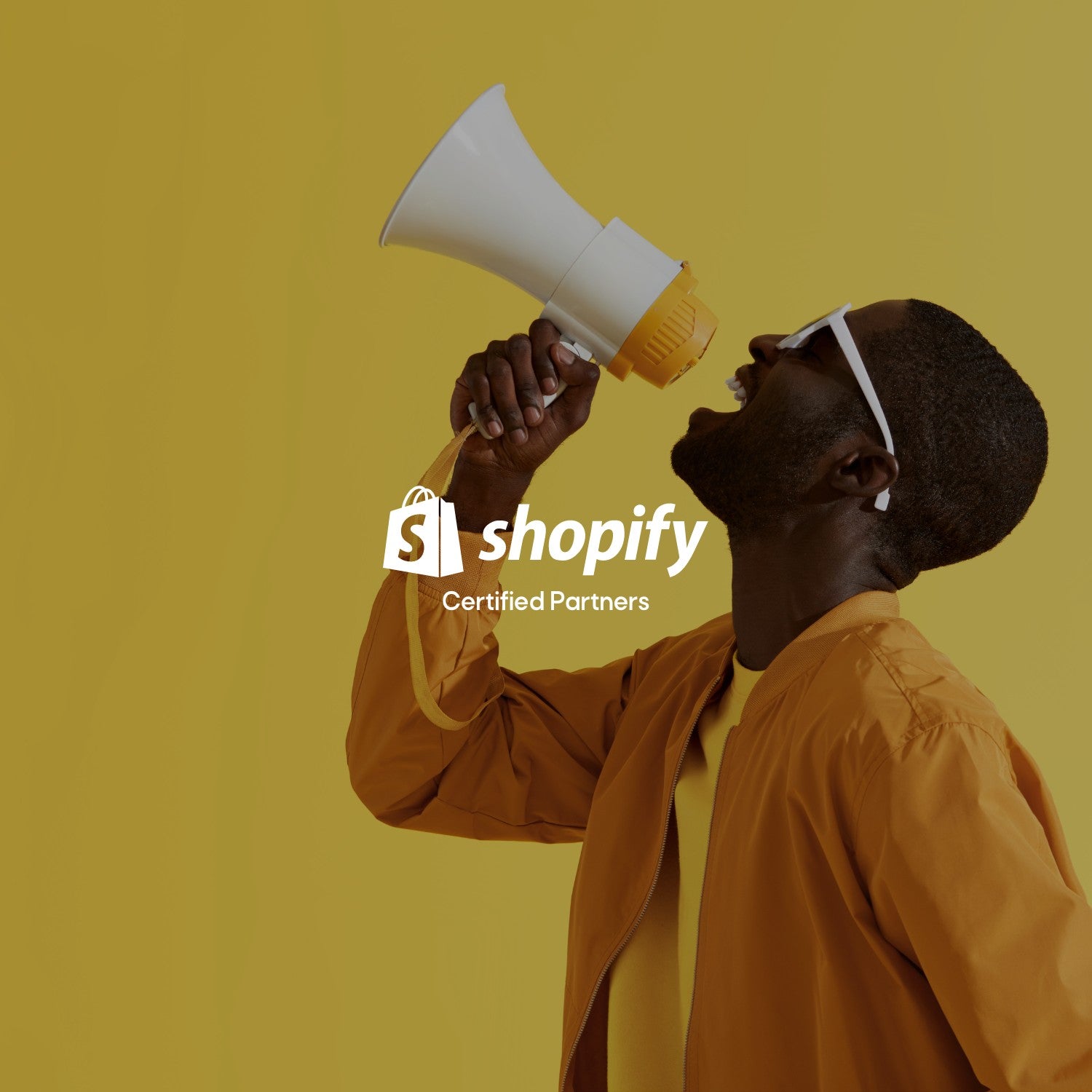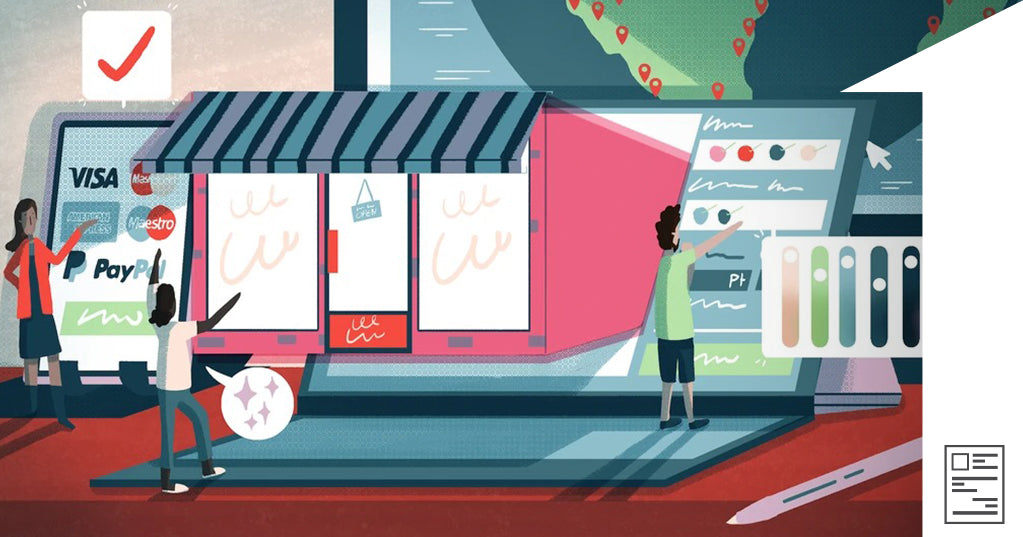Knowing how to use Snapchat ads is becoming a staple for retail brands’ social media strategies. And if you want to get traction on Snapchat, it’s likely you’ll have to pay to play.
Paid ads on Snapchat are one of the most immediate ways to impact your snaps’ reach. But how does it work? What results can you expect from your hard-earned cash?
This guide will share everything you need to know about Snapchat ads to get your campaigns running, with tips and examples from brands doing it right.
How Snapchat ads work
Snapchat ads are 10-second full-screen vertical videos that show up in between watching friends’ stories. People can swipe up to interact with your ad.
As the advertiser, you can set the swipe up to link to a website, have them watch a longer video, read an article, or install an app. The closest comparison is a Story ad on Instagram.
Similar to Facebook ads, Snapchat’s advertising platform is self-serve. Anyone can create ads, launch campaigns, monitor performance, and optimize campaigns in the Snap Ads Manager. You can launch ads for as low as $5 per day.
Are Snapchat ads right for you?
Snapchat ads are a good channel for ecommerce brands targeting younger crowds. Nearly 75% of millennials and Gen Z use Snapchat and spend over 30 minutes each day on the platform, according to internal data from 2020.
Other benefits include reaching an untapped market, powerful targeting abilities, and Snapchat favoring ecommerce brands.
Untapped market
According to Snapchat marketing statistics, there are 280 million people who use Snapchat daily. While it’s true that Instagram marketing has a larger reach, with over 500 million people watching Stories daily, advertising on smaller platforms like Snapchat still has an advantage.
Advertising on established channels like Facebook or Instagram can be more expensive. You have to compete with other brands for the consumer’s attention. Snapchat’s ad revenue is expected to reach $2.62 billion by the end of 2021, compared to Instagram’s $18.16 billion projection.
That said, Snapchat has the potential to be an exciting untapped advertising channel for your brand.
Powerful targeting
With Snapchat’s data, you can target users based on their demographics. You can target them based on their online and offline interests and behaviors. Plugging in your own data is also an option to reach Snapchatters.

For businesses looking to target a younger audience, 84% of Snapchat users are under the age of 35. On top of that, 70% of Snapchat users are women. So this could be to your advantage. However, if your products or services don’t cater to young people or women, this might not be the platform for you.
Favors retail brands
Snapchat ads have proven to be successful for the retail category. Snapchat users are 60% more likely to make impulse purchases, and 46% of Snapchatters message brands after making a purchase. The platform also offers interactive AR features like virtual “try ons” for viewers to sample products like makeup.
Snap ads tend to be the next logical jump most ecommerce brands make. They provide a good return on ad spend. I’d recommend putting 20% of your Facebook ad budget into Snap ads.
Fashion, novelty items, and impulse purchases do well with Snapchat ads. If you’re a B2C (business to consumer) brand, Snapchat ads might be right for you.
How much do ads cost on Snapchat?
Running ads on Snapchat starts at $5 per day. Advertisers can set a daily and lifetime budget that works for them and adjust as they go. Snapchat offers tools such as Snap Publisher to create and edit ads in minutes.
Snapchat charges per 1,000 impressions (CPM) but offers goal-based bidding, which allows you to optimize the campaign for a specific action Snapchatters will take, like completing a purchase or downloading an app.
Getting started on Snapchat is free—you just need to create a Snapchat account, open an ad account, and begin running ads.
Snapchat ads pricing changes depending on a number of factors including:
- Advertising objective
- Budget
- Campaign duration
- Bid goal
- Bid amount
If you want a detailed breakdown of Snapchat’s bidding strategies and pricing, read Advertising on Snapchat: How Pricing Works.
Types of Snapchat ads
Snapchat has an ad format for every business, large or small. You can leverage different ad formats tailored to your business goals and objectives, such as encouraging sales or downloads.
Let’s look at some types of ads you can run:
- Single image or video
- Collection ads
- Story ads
- Lenses
- Filters
- Commercials
- Dynamic ads
Single image or video
Single image or video ads are full-screen ads that can be used for many objectives. All you have to do is add an attachment, like a link to your website or app download, and Snapchatters can swipe up to take action. They appear in between or after content such as User Stories, Publishers, Creators, and Our Stories.
Creative can take many forms, such as videos, photos, GIFs, or cinemagraphs. You can create an ad up to three minutes long, but since people’s attention spans are short, it’s best to keep your ad between three and five seconds.
Ad specs and requirements:
- File type: .jpg, .png, .mp4, or .mov
- Aspect ratio: 9:16
- Resolution: 1080 px x 1920 px
- Length: 3–180 seconds
- Attachments: Website, app, long form video, or AR Lens
- Brand name: Up to 25 characters, including spaces
- Headline: Up to 34 characters, including spaces
- Call to action: Add CTA text. Snapchat will apply the visual and place the CTA on the ad.
Collection ads
Collection ads have four tappable tiles that let Snapchatters browse and buy your products. You can feature a series of products, and if someone is interested, they simply tap to get more information.
Collection ads are perfect for ecommerce brands that want to give Snapchatters a frictionless shopping experience.
Ad specs and requirements:
- File type: .jpg, .png, .mp4, or .mov
- Aspect ratio: 9:16
- Resolution: 1080 px x 1920 px
- Length: 3–180 seconds
- Attachments: Website, app, long form video, or Lens
- Brand name: Up to 25 characters, including spaces
- Headline: Up to 34 characters, including spaces
- Call to action: Add CTA text. Snapchat will apply the visual and place the CTA on the ad.
Collection ads also require a thumbnail image, which has its own specs:
- File type: .jpg or .png (static image only)
- Resolution: 160 px x 160 px
- Each thumbnail image requires a URL
- URLs can be used multiple times
Story ads
Story ads let you reach your target audience with a branded tile in the Discover feed. Snapchatters can tap into your ad and see a collection of three to 20 snaps. You could show off a new fashion collection, product launches, or special releases.
Viewers can also swipe up to further engage with the ad and accomplish your goal, like buying something on your website.
Ad specs and requirements:
- File type: .jpg, .png, .mp4, or .mov
- Aspect ratio: 9:16
- Resolution: 1080 px x 1920 px
- Length: 3–180 seconds
- Attachments: Website, app, long form video, or Lens
- Brand name: Up to 25 characters, including spaces
- Headline: Up to 34 characters, including spaces
- Call to action: Add CTA text. Snapchat will apply the visual and place the CTA on the ad.
The following specs are for the tile asset for the Discover section:
- Logo:
- File type: .png
- Resolution: 993 px x 284 px
- Image:
- File type: .png
- Resolution: 360 px x 600 px
- Story title: Up to 55 characters, including spaces
Lenses
Snapchat also lets you run memorable, interactive augmented reality (AR) ads in its Ads Manager. With Lens Web Builder, you can choose from hundreds of 3D objects, animations, and effects to build your own branded AR lens.
Once you’re finished, you can launch it as an advertisement for Snapchatters to play with and share with friends.
These AR ads come with many guidelines and restrictions. If you want to run them, read Snapchat’s Lenses specifications to launch a successful ad.
Filters
Geo filters are overlays that appear after a user takes a snap and swipes left or right. People can add them to their snaps to highlight neighborhoods, parks, restaurants, shops, and more. These ads normally target active users within a specific location, but can be refined by parameters like interests, gender, and age.

Ad requirements:
- File type: .png
- Resolution: 1080 px x 2340 px
- Mandatory text, logos, and legal disclaimers may not be placed within 310 px of the top or bottom of the canvas.
- Visible brand logo or brand name
Commercials
Commercials are ads Snapchatters cannot skip for six seconds and can be up to three minutes long. These ads appear within Snapchat’s curated content, which are themed collections promoted in the Snapchat app. They help brands get a long message across in a premium environment.
Ad requirements:
- File type: .mp4 or .mov (H.264 encoded)
- Aspect ratio: 9:16
- Resolution: 1080 px x 1920 px
- Length: 3–180 seconds
- Attachments: Website, long form video, or AR Lens
Dynamic ads
Most social media platforms like Facebook, Instagram, and TikTok give brands the chance to run dynamic ads. These ads automatically promote your products to people based on their actions or page views on your website. For example, if someone abandons their cart on your website, Snapchat will generate an ad for that person and show it to them on mobile.
Dynamic ads look exactly like regular Snapchat ads. The only difference is that the ad is sent to people who’ve already interacted with your brand.
Snapchat offers two formats for dynamic ads: single image and collection. They are built using items from your product catalog and pre-set templates rather than being created manually each time. In a 2020 interview with TechCrunch, Rob Seidu, Adidas’ senior director of Media Activation in Europe, reported a 52% growth in return on advertising spend after launching dynamic ads to the brand’s target Gen Z and millennial audiences on the platform.
How to create Snapchat ads
If you know how to use Facebook Ads Manager, the Snapchat Ads Manager is similar. If you haven’t used either before, then you’re in the right place to learn.
To create Snapchat ads, you first need to sign up for a Snapchat account. Once you do, head over to Snapchat’s Ad Manager.
Start by navigating to the upper-left-hand corner, where it says Create Ads.

Then choose how you want to create your first snap ad. You can choose from Instant Create or Advanced Create.

Instant Create lets you make a single ad quickly. Advanced Create gives you more control. You can create multiple ads within your campaign and build out funnels.
We’ll cover the more advanced setup in this tutorial. So click on Advanced Create.
1. Choose an objective
The first step is deciding on your objective. Think about what you want Snapchatters to do when they see your ad.

Let’s go through the objectives you’ll likely use as an ecommerce business:
- Awareness ads will help build brand or product awareness with new customers.
- App installs will drive people to download your app.
- With the traffic objective you can send people to a website of your choice, like a landing page or a product page.
- The engagement objective gets more users to engage with your advertisement.
- Video views will promote your video ad.
- Website conversions will track meaningful interactions on your website, like purchases.
- Catalog sales will display catalog of your products.
Notice how these objectives are broken into three umbrella categories: Awareness, Consideration, and Conversions. This is because customers will likely go through these three phases before making a purchase.
- In the awareness phase, the customer is just learning about your brand, service, or product.
- In the consideration phase, the customer is learning more about your offerings and considering making a purchase.
- The conversion phase is where the customer makes a purchase or takes an action you find valuable.
These three phases make up what’s called a marketing funnel. The objective is to move customers through the funnel. They will likely never go from awareness all the way through to a purchase right away. We need to nurture our audience.
When choosing an objective, think about where customers are in your funnel and build ads accordingly. If Snapchat is a new platform for you, you’ll want to start by nurturing customers at an awareness level, then retargeting the audience that interacts with your awareness advertisement and serve them an advertisement with the consideration objective.
Then you’ll want to retarget the customers that interacted meaningfully with your consideration ad and serve them with a conversion ad. Do you see how we move the customer down the funnel? You can do that with three separate ads or more.
2. Name your campaign
Next, give your campaign a name. Come up with a naming convention that makes sense to you. Make it easy to understand what the campaign is about at first glance to stay organized.

The Status button is set to On by default. That means as soon as you launch a campaign it will start on the date that you set it to.
Next up, you have the option of creating a split test. This is where you can test two variables side by side in identical campaigns to see which variable leads to better outcomes—almost like sixth grade science class, where you test a control group against an experimental group.
3. Choose a start and end date and decide on a budget

By choosing a daily spend cap, you will spend no more than what you have entered on a daily basis. Lifetime spend is how much you will spend over the lifetime of your advertisement. This means daily spend can fluctuate. You can increase, decrease, or remove the lifetime spend cap at any time.
4. Create your ad set
On the Ad Set Details page, you’ll be able to enable your Snap Pixel, if you have one. The Snap Pixel helps you measure the impact of your campaigns and see the actions people take on your website after seeing your ad.

You can get the code snippet from Ads Manager and post it on your website if you choose. This is helpful for creating retargeting ads in the future.
Scroll down and you’ll have the option to choose your ad format, ad type, and attachment.

Next, select your ad placement. You’ll see the option to run Automatic Placement, which is where Snapchat will help show your ads to more people, across multiple placements, where they are likely to perform best.

Next, define who you want to see your ads. You can choose specific locations and demographics to target. Snapchat also lets you choose a target demographic by location, and advanced filters such as occupation or interests.

You can also further refine your target group by selecting a predefined audience. These are pre-built audiences using Snapchat and third-party data you can use to connect with people based on their interests and behaviors. You can also get specific by targeting certain operating systems, like Apple iOS or Android.

Scroll down and you’ll reach the delivery section. Here, you can confirm how much you want to spend, how long the campaign will run, and your bidding strategy.
If you’re unsure how much to spend when advertising on Snapchat, start low. You can always increase your budget if the ad is performing well.

5. Build your ad
On the next screen you’ll see the option to design your ad. Upload your visuals, add your brand name, headline text, CTA, and any additional information required. These fields may change depending on your ad campaign objective.
You’ll be able to view how your ad will look on the right side of the editor.

Once everything looks great, review your information on the next screen. Add your business address and payment information, then click Publish Campaign in the bottom right corner.

Snapchat ad tips
Now that you know how to create a snap ad in the Ads Manager, here are a couple of Snapchat tips that will help your ads convert.
Use retargeting ads
Moving an audience through a funnel with retargeting ads can have a higher conversion rate then just running a single ad. Retargeting is when you serve an audience another ad or ad sequence based on an interaction they took on a previous ad.
Snapchat calls this type of audience Ad Engagement Audiences. It’s a retargeting strategy that’s confined to actions people take on Snapchat ads only.
Let’s take a look at how you might make a sequence of ads and use retargeting effectively.
- Your first ad can be a seven-second video of someone demonstrating the unique features of your product and how it’s used. This would be your first brand awareness ad.
- Then you might retarget the people that swiped up. You could pull the engaged audience into consideration, or the second phase of the funnel by serving them an ad that speaks to your brand’s leadership in sustainability.
- The audience that interacted with that second ad would then be pulled into the conversion phase of the funnel, where you might serve them an ad that has a sale and free shipping.
Discounts and free shipping are generally a great way to get people that are on the fence to finally make a purchase.
Don’t re-use IG Story content
While it’s tempting to take an ad that you made for Instagram and throw it up on Snapchat, it’s not something we’d recommend doing. Instagram’s user base is different from Snapchat’s—it tends to attract a more broad, general audience. Take advantage of the niche Gen Z and female audience on Snapchat by creating highly tailored messaging.
Be consistent with your content on Snapchat
Slow and steady wins the Snap race. If you’re limited by budget, make sure that you’re spreading it out. Being highly active in the month of January and then completely falling off the face of the earth from February to March is no good.
Of course, if your brand has specific reasons to advertise more heavily at one point in the year, or has a strategy in place for a sprint style of advertising, then go for it. Every brand is different, but a general rule of thumb is to keep your brand top of mind over a longer period of time.
“Create a full funnel structure as you would with Facebook ads or any paid social platform,” says Jack Shepherd, founder of social media marketing agency The Social Shepherd. “Use appropriate custom audience exclusions throughout your funnel to control which creative each person is seeing, depending on where that person is in that journey with your brand.”
Jack recommends the following tips for creating ad content for Snap:
- Focus on one key message.
- Strong message from the start. You need to capture a viewers’ attention within the first second, otherwise you'll lose that user.
- No longer than 20 seconds for your creatives.
- Create intrigue to drive the swipe up, but give enough context in the video itself to ensure you're driving high-quality traffic.
Make your ads feel natural and not overly salesy
Create content that is fun and exciting 80% of the time. The other 20% should be for pushing your products. People are opening up the Snapchat application to share stuff with their friends. Nobody goes on Snapchat thinking, “Hey, I want to see a great advertisement today.”
So how do you make an ad that people enjoy watching? Keep them authentic.
Work with content creators & micro-influencers to videos in the style of 'user-generated content', so it feels authentic to the user.
Try looking at the organic content on social media and adapt that to fit your brand and messaging. Consider an underproduced look. Skip the lights and studio for your Snapchat ads.
Before making an ad ask yourself the question, “How can I make people laugh, smile, or feel curious or shocked” rather than just “How can I get someone to buy my product?”
Start building your Snapchat advertising campaign today
There’s no doubt that Snapchat ads are worth it for ecommerce brands. Both big and small retailers and marketers can lean into the power of mobile shopping, showing commerce-made ads and encouraging people to browse and buy on their phones.
Remember that success in Snapchat ads relies on authenticity. Make your ads feel natural by cutting out the heavy production. Use retargeting to move people through your funnel. And test and optimize based on your ad metrics. You’ll soon start seeing the rise in leads and sales on your site from Snap ads.
Illustration by Eugenia M













